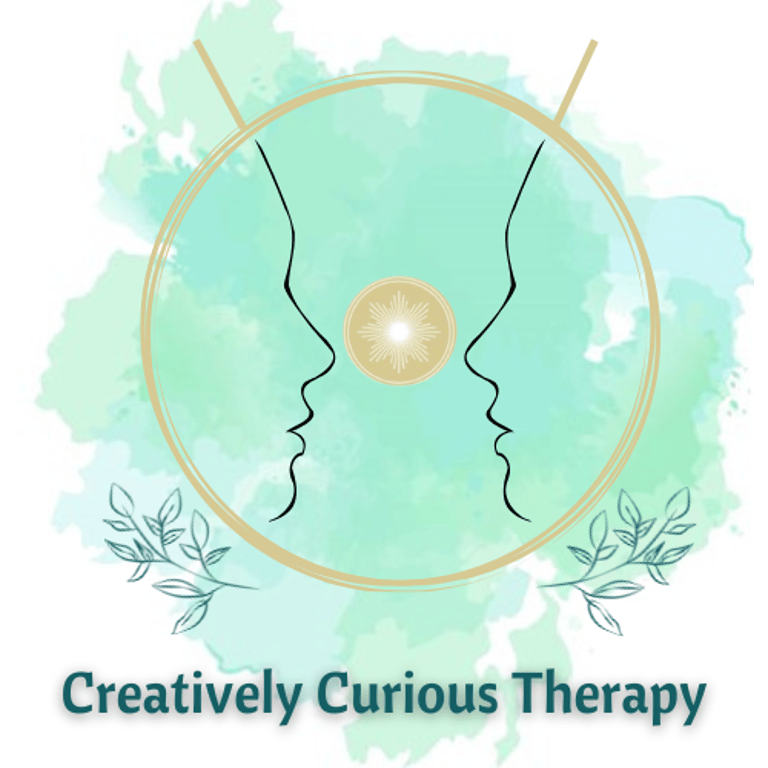The Power of Individual Psychotherapy: A Path to Emotional Healing and Personal Growth
Discover how individual psychotherapy can support your emotional healing and personal growth. This post explores the benefits of therapy for those dealing with grief, religious trauma, purity culture, chronic illness, and caregiving. Learn how personalised support can help you build resilience, gain self-awareness, and navigate life’s challenges. Whether you're coping with loss or seeking personal growth, this blog highlights how therapy can help you on your journey to healing.
Lydia Freeman
3/26/20256 min read


The Power of Individual Psychotherapy: A Path to Emotional Healing and Personal Growth
I understand that life’s challenges can sometimes feel overwhelming, leaving you struggling to navigate your emotions, relationships, and personal growth. Whether you’re facing grief, dealing with bereavement, struggling with the aftereffects of religious trauma, unlearning the harmful teachings of purity culture, or managing the emotional toll of a chronic medical condition or caring for a loved one, individual psychotherapy offers a safe, supportive space for healing and transformation.
As a qualified psychotherapist, I am committed to walking alongside you on your journey, offering personalised therapy that aligns with your unique needs. In this post, I’ll explore the many benefits of individual psychotherapy and how it can help you take the first steps toward emotional healing, greater self-awareness, and lasting personal change.
What is Individual Psychotherapy?
Individual psychotherapy is a therapeutic process where you work one-on-one with a trained therapist to explore your thoughts, emotions, and behaviours. Unlike group therapy, which involves sharing experiences with others, individual therapy is a private, confidential space for you to explore your inner world with the guidance of a professional.
I tailor each session to meet your specific needs and goals. Whether you're facing complex grief, emotional distress from religious trauma, navigating the unlearning process of purity culture, or grappling with the physical and emotional burden of chronic illness or caregiving, we work together to explore the root causes of your challenges, understand how they are affecting your life, and develop strategies to cope and heal.
The Benefits of Individual Psychotherapy
1. A Safe Space for Emotional Exploration
The core benefit of individual psychotherapy is the safe and confidential environment it provides. It’s a space where you can express yourself honestly without judgment. Whether you’re grappling with grief, processing the pain of loss, or confronting the long-lasting effects of religious trauma, purity culture, or the emotional strain of caregiving, you have the freedom to explore your emotions and gain insights into your mental health. This process of self-reflection is essential for healing and self-awareness.
As your therapist, I create a compassionate and non-judgmental space where you can feel supported while navigating challenging emotions. Together, we will explore the emotional wounds left by past experiences, helping you work through and process difficult feelings.
2. Personalized Support for Grief and Bereavement
Grief and bereavement are deeply personal experiences that can affect every aspect of your life. Whether you’ve lost a loved one recently or are still processing the pain of a loss, individual psychotherapy can help you navigate the complex emotions that come with grief. Grief isn’t just about sadness; it can include anger, guilt, confusion, and even relief. Through therapy, I help you make sense of your grief and guide you toward healing.
Research shows that psychotherapy can be particularly effective for individuals coping with grief. According to a study published in Psychological Science, grief therapy can help individuals accept their emotions and adjust more effectively to the loss of a loved one (Bonanno et al., 2004). At Creatively Curious Therapy, I specialise in helping clients process their grief in a healthy, non-linear way. We will work through your unique experience, allowing you to honour your loss while also finding ways to heal and move forward at your own pace.
3. Healing from Religious Trauma and Purity Culture
Religious trauma and the harmful impact of purity culture can leave deep emotional scars, often affecting your sense of self-worth, relationships, and spiritual beliefs. Many individuals raised in strict religious environments struggle with feelings of shame, guilt, and confusion, particularly when they begin questioning teachings that no longer resonate with them.
Research on religious trauma shows that negative religious experiences can contribute to psychological distress. A study published in Psychology of Religion and Spirituality found that individuals who experience religious trauma often face difficulties with emotional regulation and a sense of identity (Exline et al., 2014). In therapy, we can explore the ways religious trauma has shaped your life, helping you unravel feelings of shame and reclaim a healthier, more authentic spiritual identity. For those who were raised within purity culture, therapy provides a safe space to process the harmful effects of rigid beliefs about sexuality and personal worth. Together, we will work on unlearning the shame-based teachings, cultivating a more positive, accepting relationship with yourself and your spirituality.
4. Supporting Those with Chronic Medical Conditions
Chronic medical conditions can have a significant impact on your emotional well-being, often leading to feelings of frustration, isolation, and even depression. Whether you are living with a long-term illness or managing the pain and uncertainty of a condition, psychotherapy can help you cope with the emotional toll that these conditions place on your life.
Research indicates that individuals with chronic conditions are at a higher risk for depression and anxiety, as the constant physical challenges can take a mental and emotional toll. Psychotherapy, particularly when combined with other forms of support, can provide individuals with the tools to manage the emotional effects of chronic illness. A study in JAMA Internal Medicine found that psychotherapy helped improve the mental health outcomes of individuals with chronic conditions like diabetes and heart disease (Miller et al., 2013). In therapy, we can explore the emotional effects of your illness, work through the distress caused by physical symptoms, and build resilience in the face of ongoing challenges.
5. Navigating the Emotional Burden of Caregiving
Taking on the role of a caregiver is both rewarding and challenging. Whether you’re caring for an aging parent, a partner with a chronic illness, or a child with special needs, the emotional strain of caregiving can leave you feeling exhausted, overwhelmed, and even resentful. Many caregivers also experience feelings of guilt and self-doubt, questioning whether they are doing enough for their loved ones.
Psychotherapy offers caregivers a safe and supportive space to process these emotions, gain perspective, and develop coping strategies. According to a study published in The Journal of Gerontological Social Work, caregivers who engage in therapy are better able to manage stress and prevent burnout (Vitaliano et al., 2003). In our sessions, we can work through feelings of emotional exhaustion, explore ways to find balance, and develop practical strategies for coping with the unique challenges of caregiving. By addressing the emotional toll caregiving can take, therapy empowers you to care for your loved ones while also caring for yourself.
6. Understanding Your Thoughts and Behaviour Patterns
One of the most powerful aspects of individual psychotherapy is the opportunity to identify and challenge unhelpful thought patterns and behaviours. Many of us carry deep-seated beliefs and attitudes that influence our decisions, relationships, and mental health in ways we might not fully realise.
According to a study in Psychiatric Clinics of North America, recognising maladaptive thought patterns in psychotherapy can be crucial for improving mental health outcomes (Beck, 2011). Through psychotherapy, you can gain insight into the thought processes that shape your emotions and actions. By understanding how these patterns develop and manifest, you can start to replace them with healthier, more constructive ways of thinking and behaving. This process helps break the cycle of negative thoughts and empowers you to lead a more fulfilling life.
7. Healing from Trauma and Emotional Pain
Trauma and emotional pain, whether from grief, religious experiences, caregiving stress, or chronic illness, can deeply affect our mental health and daily functioning. Whether it’s from past abuse, loss, betrayal, or other painful experiences, unresolved trauma can often lead to issues like anxiety, depression, low self-worth, and difficulties in relationships. In individual psychotherapy, we can work together to process these painful experiences and begin the healing journey. I specialize in helping clients heal from trauma—especially religious trauma, grief, and the emotional toll of caregiving—creating a safe space to share your story, process your emotions, and learn healthy ways of coping with difficult memories.
8. Building Coping Skills and Emotional Resilience
A key aspect of psychotherapy is learning effective coping skills that allow you to better handle life’s stresses and challenges. Whether you are dealing with grief, the emotional aftermath of trauma, or navigating the pressures of caregiving or chronic illness, therapy provides practical tools for managing your emotions and reactions.
In our sessions, you will learn techniques to help manage stress, process overwhelming emotions, and build emotional resilience. Over time, these tools can help you face challenges with greater ease, confidence, and clarity, enabling you to take charge of your mental health and emotional well-being.
How Individual Psychotherapy Can Support Your Personal Growth
Individual psychotherapy is not just for those in crisis - it’s also an essential tool for ongoing personal growth. Even if you’re not facing a specific mental health challenge, therapy can provide you with valuable insights into yourself, your goals, and your values. It’s a space for you to reflect, grow, and continually evolve into the best version of yourself.
Many clients come to therapy with a desire to better understand their purpose, improve their emotional intelligence, or navigate a life transition. Whether you’re making career changes, redefining your identity, or looking for more meaning and fulfilment, individual therapy is a powerful resource to support your journey.
If any of the above speaks to you, and you feel you would like to explore working together, I would welcome your contact. Please reach out so that we can arrange an initial consultation to explore the potential of working together.
Best wishes
Lydia
References:
Bonanno, G. A., Wortman, C. B., & Nesse, R. M. (2004). Prospective patterns of resilience and maladjustment during widowhood. Psychological Science, 15(4), 129-135.
Cuijpers, P., Karyotaki, E., Weitz, E., Andersson, G., & van Straten, A. (2016). Psychological treatment of post-traumatic stress disorder: A meta-analysis. The Lancet Psychiatry, 3(7), 537-549.
Exline, J. J., Pargament, K. I., & Grubbs, J. B. (2014). The role of religion and spirituality in mental health. Psychology of Religion and Spirituality, 6(3), 135-146.
Beck, A. T. (2011). Cognitive therapy: Basics and beyond (2nd ed.). Guilford Press.
Vitaliano, P. P., Zhang, J., & Scanlan, J. M. (2003). Is caregiving a risk factor for physical disease? Psychological Bulletin, 129(6), 946-972.
Miller, W. R., & Rollnick, S. (2013). Motivational interviewing: Helping people change (3rd ed.). The Guilford Press.
Creatively Curious Therapy
RELAX CONNECT EXPLORE
E: info@creativelycurioustherapy.co.uk
T: 07783 324437
© 2025. All rights reserved.
